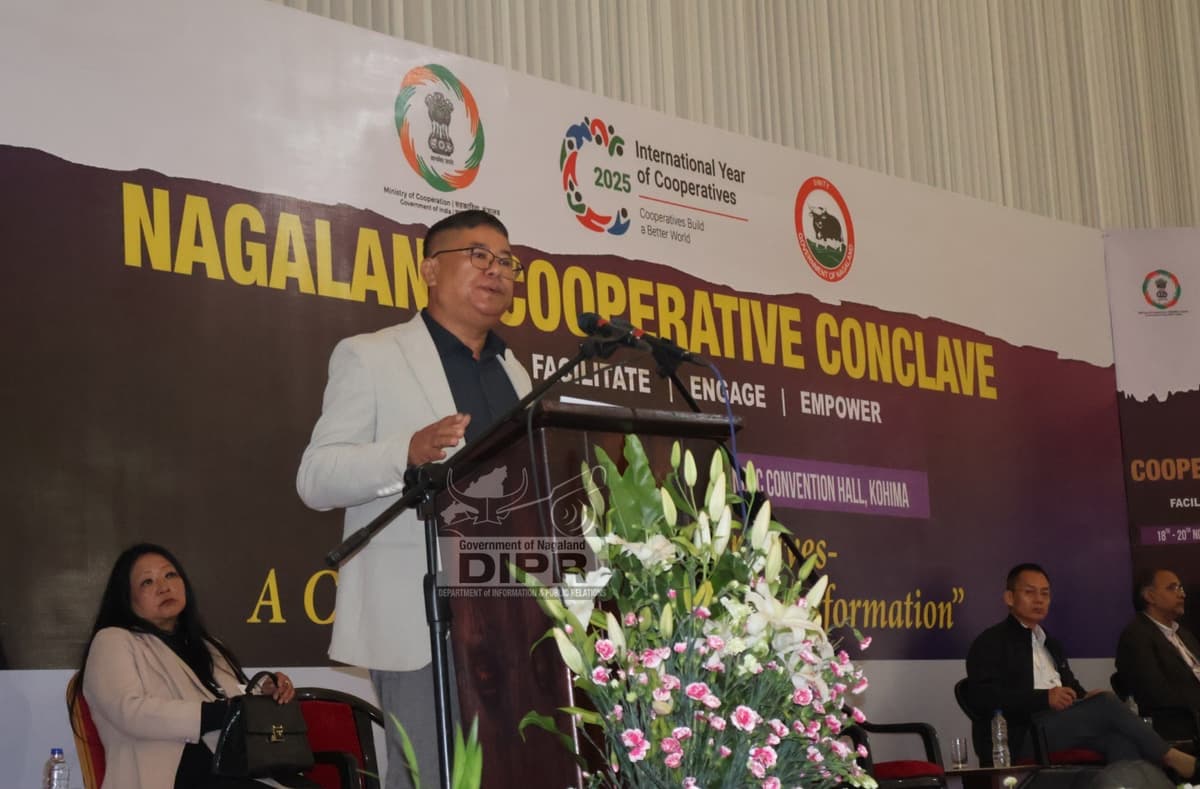Nagaland Cooperative Conclave concluded in Kohima, stressing youth engagement, entrepreneurship and stronger cooperative growth in the state.
Share

DIMAPUR — The final-day sessions of the Nagaland Cooperative Conclave focused on youth engagement, entrepreneurship, and strengthening the state’s cooperative sector at the NBCC Convention Hall, Kohima, on Thursday.
Commissioner and Secretary for Cooperation and Information and Public Relations Orenthung Lotha mentioned the growing importance of cooperatives in strengthening community resilience and driving inclusive economic growth as the Nagaland Cooperative Conclave drew to a close, according to a DIPR report.
Speaking at the valedictory session, he noted that the three-day conclave created a space for participants to share ideas, experiences, and aspirations that reaffirm the potential of cooperatives beyond their role as institutions. He emphasised that the discussions and activities had demonstrated how collective effort can help communities move markets, improve livelihoods, and contribute to the economic future of both Nagaland and the wider region.
Also read: Administrative Training Institute launches foundation courses for NCS probationers
Reflecting on the conclave’s theme, 'Cooperatives – a catalyst for economic transformation', Orenthung said the insights and commitments shared over the past days strengthened the belief that the cooperative movement in Nagaland is poised to reach new heights. He expressed confidence that the partnerships formed during the event would continue to support farmers, artisans, entrepreneurs, youth, and communities across the state.
He also conveyed appreciation to all organisers, participants, and collaborators for their dedication and contribution in shaping a shared vision for the cooperative sector.
Joint Registrar of Cooperative Societies Bokato Hesso presented an overview of the deliberations held over the past three days and outlined the sector’s way forward. He noted that the cooperative movement in Nagaland is at a crucial turning point and needs stronger coordination, inclusive planning, and long-term strategies.
Hesso highlighted key areas for progress, including expanding opportunities in agriculture and allied sectors, strengthening cross-departmental collaboration, and addressing bottlenecks such as departmental silos, policy gaps, information asymmetry, and weak institutional structures.
He stressed the need for better credit access, financial literacy, and improved utilisation of resources, along with greater involvement of youth in emerging areas like climate-resilient farming and digital agriculture.
He called for harmonised policies, appointment of nodal officers for better convergence, and a shared commitment across departments to build cooperatives as catalysts of sustainable and equitable growth for Nagaland.
The Best Exhibitor Awards at the valedictory session went to Cold Mountain Food Processing and Marketing CS Ltd., Burma Camp, Dimapur, in the Food and Processing category; United Shemong Farming CS Ltd., Pongo Village, Longleng, in the Weaving Handcrafts and Artisans category; and Verhiyinumi Khel Agri and Allied CS Ltd., Yoruba Village, Phek, in the Agri and Allied category.